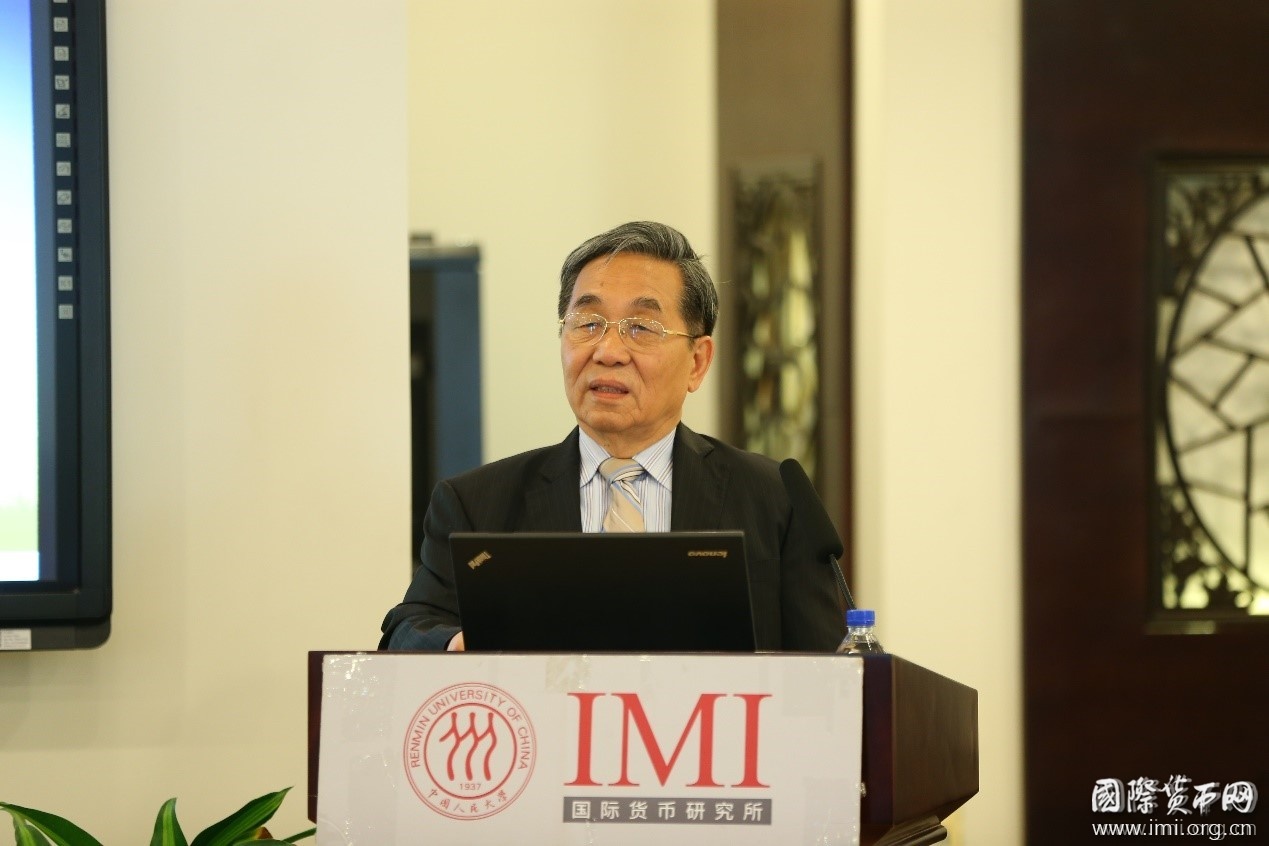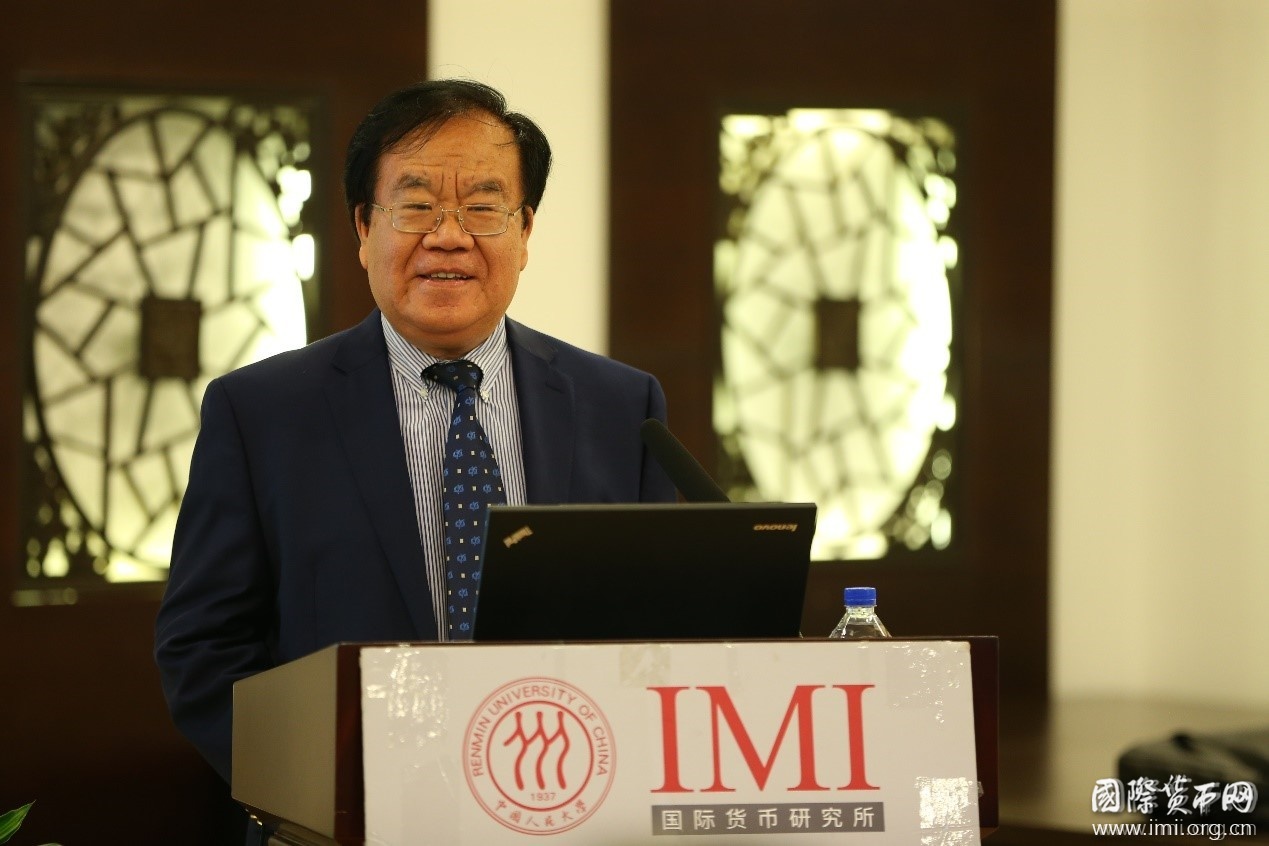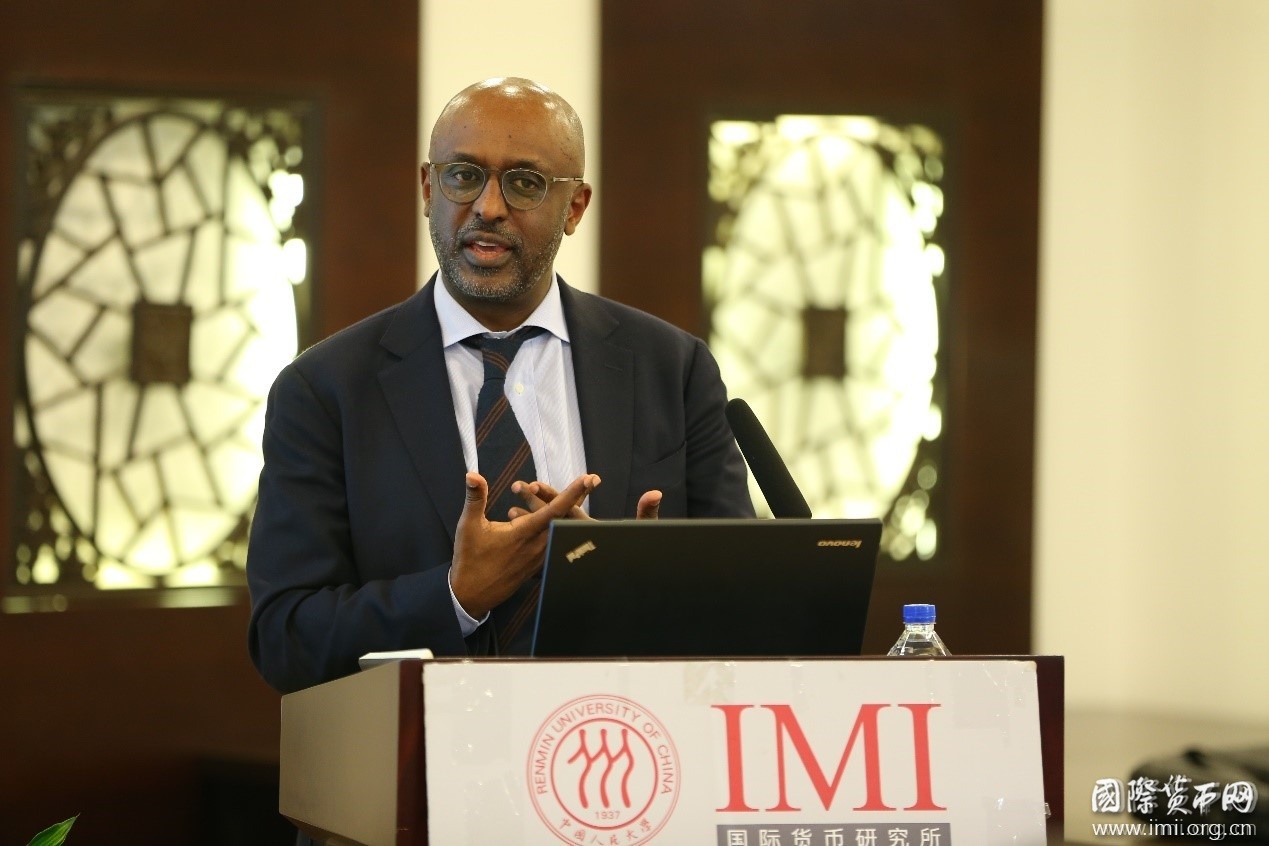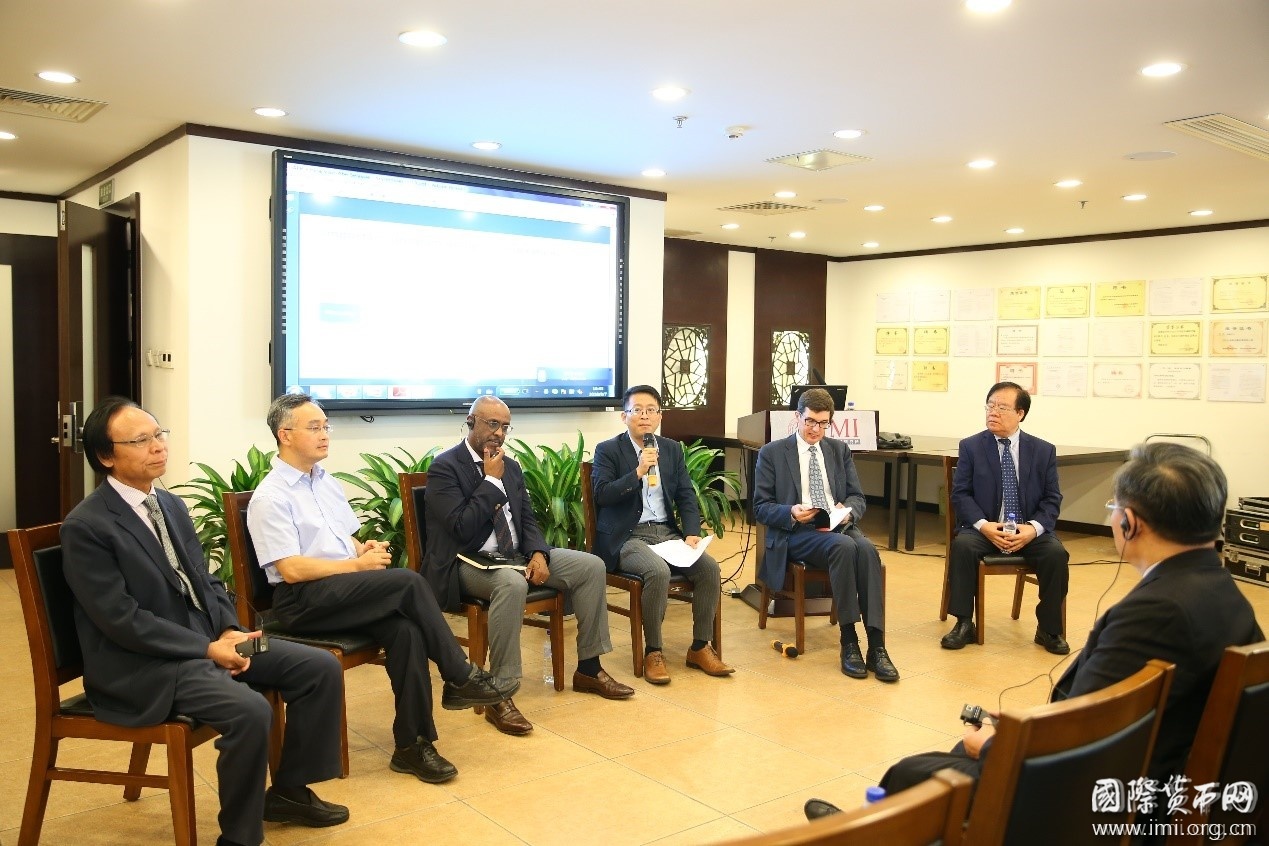Macro-Finance Salon (No. 97): Africa: Improving Growth Potential
2018-09-07 IMI Before the discussion, Wei Benhua welcome the guests. Based on the important speech delivered by General Secretary Xi Jinping at the Beijing Summit of Forum on China-Africa Cooperation, he forecast the future for China-African cooperation. He listed China's assistance to Africa from the three aspects of capital, human resource and technology, and the role China’s capital plays in releasing the African economic potentials. Wei Benhua mentioned that China has become the third largest shareholder of the IMF and has established a special China-Africa Development Fund. At this moment China encourages private sector enterprises to invest in infrastructure development in Africa. In this circumstance, realizing Africa’s potentials in development can be anticipated.
Before the discussion, Wei Benhua welcome the guests. Based on the important speech delivered by General Secretary Xi Jinping at the Beijing Summit of Forum on China-Africa Cooperation, he forecast the future for China-African cooperation. He listed China's assistance to Africa from the three aspects of capital, human resource and technology, and the role China’s capital plays in releasing the African economic potentials. Wei Benhua mentioned that China has become the third largest shareholder of the IMF and has established a special China-Africa Development Fund. At this moment China encourages private sector enterprises to invest in infrastructure development in Africa. In this circumstance, realizing Africa’s potentials in development can be anticipated.
 Abebe Selassie gave a keynote speech titled “Africa: Improving Growth Potential”. The speeches were carried out in three aspects: "the status quo and challenges of the development in sub-Saharan Africa", "Africa’s view on China-Africa relationship" and "IMF’s role in Africa". First, from the 1990s to 2016, Africa’s income level has increased strongly. Although in 2016, in Nigeria and other seven major crude oil exporting countries, economy decreased by 1.5%, due to the decline in commodity exports, the upward trend remained strong in countries with diversified economic sectors. However, debt crisis, severe or minor, due to infrastructure construction investment is also worth noting in sub-Saharan countries. Policy dialogues are necessary in this regard. Second, China-Africa cooperation is multi-faceted and multi-layered.
60 billion US dollars from China made the country Africa's largest creditor, but cooperation between China and Africa should be more than investment. China's development model is worth learning, especially in private-private trade. He predicted that in 2050, Africa will become the world's largest source of labor growth. Based on the aging of China's working population, Africa will be able to provide a higher return on investment. Lastly, Abebe Selassie pointed out that IMF’s assistance to Africa is mainly policy advices, vocational trainings and financial support. In terms of financial support, he thinks that the IMF focuses more on adjustment, trying to steadily slow down the crisis through gradual supply of resources, in order to stabilize the economy.
Abebe Selassie gave a keynote speech titled “Africa: Improving Growth Potential”. The speeches were carried out in three aspects: "the status quo and challenges of the development in sub-Saharan Africa", "Africa’s view on China-Africa relationship" and "IMF’s role in Africa". First, from the 1990s to 2016, Africa’s income level has increased strongly. Although in 2016, in Nigeria and other seven major crude oil exporting countries, economy decreased by 1.5%, due to the decline in commodity exports, the upward trend remained strong in countries with diversified economic sectors. However, debt crisis, severe or minor, due to infrastructure construction investment is also worth noting in sub-Saharan countries. Policy dialogues are necessary in this regard. Second, China-Africa cooperation is multi-faceted and multi-layered.
60 billion US dollars from China made the country Africa's largest creditor, but cooperation between China and Africa should be more than investment. China's development model is worth learning, especially in private-private trade. He predicted that in 2050, Africa will become the world's largest source of labor growth. Based on the aging of China's working population, Africa will be able to provide a higher return on investment. Lastly, Abebe Selassie pointed out that IMF’s assistance to Africa is mainly policy advices, vocational trainings and financial support. In terms of financial support, he thinks that the IMF focuses more on adjustment, trying to steadily slow down the crisis through gradual supply of resources, in order to stabilize the economy.
 During the roundtable discussion hosted great communication. Hot topics such as responses to possible African debt crises, possible welfare issues, China-Africa capacity cooperation, exchange rate risks, basic resources supply and investment, return on investment in sub-Saharan countries, transparency of public expenditure in the process of economic reform and Central Africa hot topics political and cultural exchanges were deeply discussed.
During the roundtable discussion hosted great communication. Hot topics such as responses to possible African debt crises, possible welfare issues, China-Africa capacity cooperation, exchange rate risks, basic resources supply and investment, return on investment in sub-Saharan countries, transparency of public expenditure in the process of economic reform and Central Africa hot topics political and cultural exchanges were deeply discussed.
 The Macro-Finance Salon is a high-level academic salon jointly organized by the International Monetary Institute and Monetary and Financial Department, School of Finance, Renmin University of China. The salon four categories: Policy Experts, Academic Experts, Business Elites and Young Scholars. Based on China's and the world's practices, it has built a high-level, professional and open platform for academic exchanges in order to promote the development of "Macro-Finance" disciplines in the new era and to carry out the "Macro-Finance" theories, policies and strategy researches. The concept of "Macro-Finance" originated in the basic idea of the combination of macro and micro financial theory advocated by Professor Huang Da. It conceptually originated the systematic idea of an inseparable whole of the financial and the real part of economy. Chen Yulu, PBoC's Deputy Governor, systematically demonstrated the basic connotation and methodology of "Macro-Finance" in his book, The Outline of Big Finance, and built a "Macro-Finance" that is conducive to long-term economic growth and national compacity. The concept is supported by both theories and evidence.
The Macro-Finance Salon is a high-level academic salon jointly organized by the International Monetary Institute and Monetary and Financial Department, School of Finance, Renmin University of China. The salon four categories: Policy Experts, Academic Experts, Business Elites and Young Scholars. Based on China's and the world's practices, it has built a high-level, professional and open platform for academic exchanges in order to promote the development of "Macro-Finance" disciplines in the new era and to carry out the "Macro-Finance" theories, policies and strategy researches. The concept of "Macro-Finance" originated in the basic idea of the combination of macro and micro financial theory advocated by Professor Huang Da. It conceptually originated the systematic idea of an inseparable whole of the financial and the real part of economy. Chen Yulu, PBoC's Deputy Governor, systematically demonstrated the basic connotation and methodology of "Macro-Finance" in his book, The Outline of Big Finance, and built a "Macro-Finance" that is conducive to long-term economic growth and national compacity. The concept is supported by both theories and evidence.
